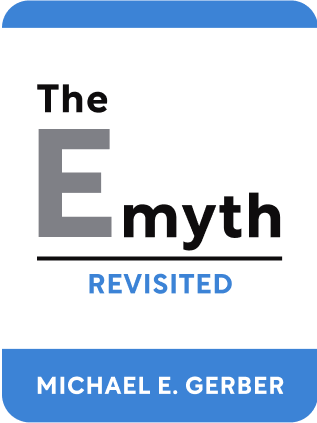

This article is an excerpt from the Shortform book guide to "The E-Myth Revisited" by Michael E. Gerber. Shortform has the world's best summaries and analyses of books you should be reading.
Like this article? Sign up for a free trial here .
What is the Entrepreneurial Myth? What’s the truth about starting and growing a successful small business?
The E-Myth Revisited is a classic business book by Michael E. Gerber. The E-Myth stands for “the Entrepreneurial Myth.” Gerber explains how you can undermine your new business by focusing solely on the product and just trying to work harder. The right approach is to view your business like a franchise—to systematize operations so that it no longer relies on you.
Read more to learn about the Entrepreneurial Myth.
Why Most Small Businesses Fail
Many people dream of quitting a job or boss they dislike and becoming their own boss by starting a business. Each year, a million new businesses are started. However, 40 percent fail within the first year and 80 percent fail within five years. Of those that last five years, more than 80 percent fail in the next five.
Underlying the failure rate are persistent romantic notions about how businesses are born and what it takes to succeed. Understanding the Entrepreneurial Myth means gaining an awareness of the wrong beliefs and assumptions that undermine new businesses—and learning how to overcome them and succeed.
How Small Businesses Can Succeed
Succeeding in a new business starts with understanding these driving forces:
- The Entrepreneurial Myth: The myth is that most businesses are started by entrepreneurs with business knowledge, who come up with an innovative idea and take the risk of investing in it in hopes of making a profit. In fact, entrepreneurship isn’t the reason most businesses are started. They’re started because people who are good at something believe their technical skills are a ticket to success and they start a business on those skills alone. Acquiring business knowledge gets left out of the equation.
- The Growth of Franchises: Since the launch of McDonald’s in the sixties, corporations selling “turn-key” franchises along with training to would-be small business owners has become a highly successful alternative to taking the risks of starting a business from scratch.
- The Business Development Process: The business development process at the center of the franchise movement serves as a useful model for the development of an independent business or transformation of an existing business. Any small business owner can apply it in a step-by-step, predictable way to achieve results.
The typical small business owner—a technician—has bought into the Entrepreneurial myth. She works too hard, too long for the return she’s getting. She’s overworked and exhausted because she’s focused on the wrong work—technical work. As a result, the business that started as a dream becomes overwhelming and the work a grind.
Understanding the Entrepreneurial Myth
Most people believe the Myth of the Entrepreneur, which is that new businesses are started by entrepreneurs who spot opportunities for making a profit and risk capital for an ultimate payoff.
However, most small businesses aren’t started by sharp-eyed entrepreneurs. They’re started by people like you, struck by the idea of becoming your own boss. Usually, you’re doing technical work and something triggers the thought of going it alone and doing the same work for yourself rather than for someone else. For instance, you might suddenly get fed up with the demands or feel your talents and efforts are unappreciated. So whether you’re a hairstylist, pet groomer, plumber, or technical writer, you start your own business.
You erroneously assume that your ability to make something or do something well will translate into business success — that what a business does and how it works are the same thing. But technical knowledge isn’t enough. It can even be a liability if you think you already know everything you need to know. Running a business requires a different mindset from that of a technician and a broader set of skills.
As a technically oriented small business owner, you jump in with both feet, enthusiastically working around the clock, but eventually, your labor of love becomes drudgery, a lot like the drudgery of the job you left. The small business that you thought would liberate you has become a job — one that’s taken over your life — and you end up tired and disillusioned.
It Starts With You
This book is about starting a successful business or turning your business around if you’re struggling. The process starts with changing yourself. For your business to change, you must change first because your business is a reflection of who you are, including your limitations.
The first thing to change is your view of what a business is and what makes a business work. It’s a matter of understanding the Entrepreneurial myth and grasping the reality of business success.

———End of Preview———
Like what you just read? Read the rest of the world's best book summary and analysis of Michael E. Gerber's "The E-Myth Revisited" at Shortform .
Here's what you'll find in our full The E-Myth Revisited summary :
- Why so many new business owners fail
- Why how you produce something is more important than what you produce
- The 7 components that you as an owner must work through






